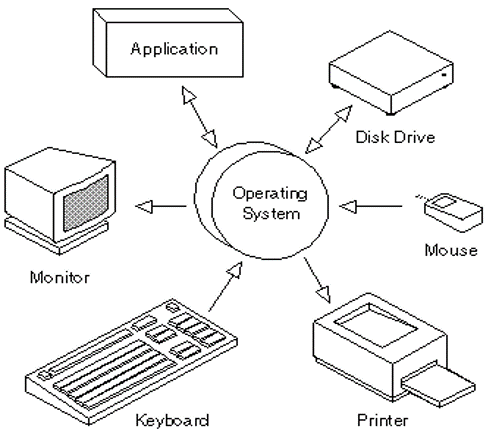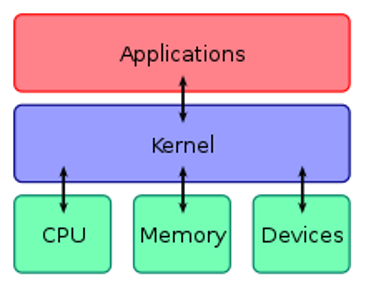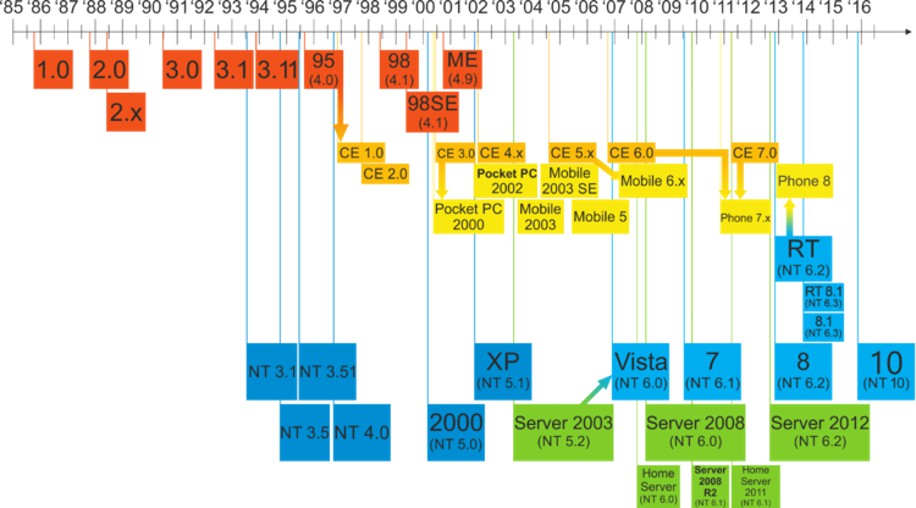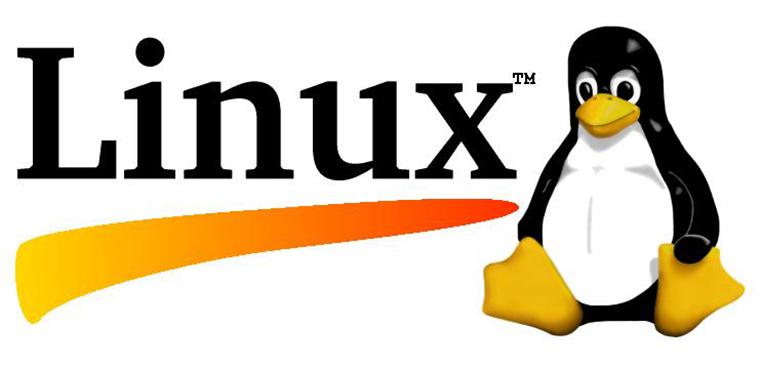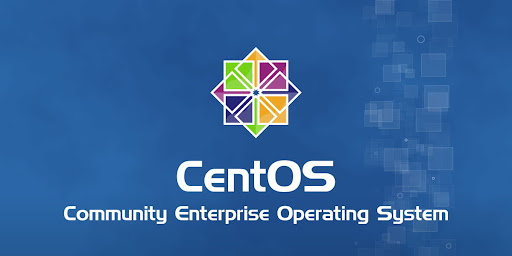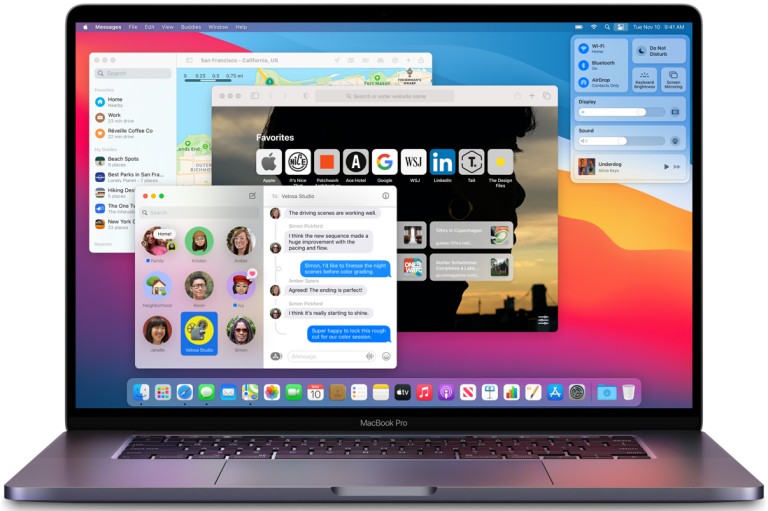1. Operating System (OS)
An Operating System is a software platform that enables other applications to run on electronic devices. The Operating System allows users to operate and manage hardware devices and software resources.
The operating system has several functions:
- Running system programs
- Managing hardware devices
- Managing software resources
- Providing a platform for other applications
- Acting as an intermediary between the user and the computer
An Operating System has three main components: Kernel, User Interface, and Program Execution.
- The Kernel is responsible for controlling the hardware device. It performs tasks such as reading and writing data, processing commands, and receiving data from the network.
- The User Interface allows users to interact with the computer.
- Program Execution enables applications to communicate with hardware to execute programs.
2. Popular Operating Systems
There are several operating systems available, including Windows, Linux, and Mac.
Windows OS
Windows OS, also known as Microsoft Windows, is a family of operating systems developed by Microsoft. It is the world’s most widely used operating system, with over 1.3 billion active users as of 2021.
Windows OS was first released in 1985 and has since gone through many iterations and updates. Windows OS is designed to be user-friendly and easy to navigate, with a graphical user interface (GUI) that allows users to interact with the system using a mouse and keyboard.
One of the key features of Windows OS is its compatibility with a wide range of hardware and software, making it a popular choice for both personal and business use. Windows also offers a variety of built-in applications and tools, such as Internet Explorer, Microsoft Office, and Windows Media Player.
On June 24, 2021, Microsoft unveiled its latest operating system, Windows 11. This new OS comes with a revamped user interface, new features, and improved performance.
One of the significant changes in Windows 11 is the redesigned Start menu and taskbar. The Start menu is now in the center of the screen with a modern design. The taskbar icons are also centered. Users can now use the Snap Layouts feature to arrange apps and windows on the screen more efficiently.
Windows 11 also comes with a new feature called Snap Groups, allowing users to quickly switch between virtual desktops. The new OS also supports Microsoft Teams natively, making it easier for users to communicate and collaborate with others.
Another significant improvement in Windows 11 is the enhanced touch controls, making it more touch-friendly for devices like tablets and 2-in-1s. The new OS also supports Android apps, which can be downloaded from the Microsoft Store and run natively on Windows 11.
Linux OS
version 0.01
On August 25, 1991, Linus (Linus Torvalds) released version 0.01 and announced his intentions for Linux on the comp.os.minix forum.
version 0.12
In January 1992, Linus released version 0.12, which included a shell and C compiler. With this release, Linus was able to recompile his operating system without using Minix. He named his operating system Linux.
Version 1.0
The official release of Linux version 1.0 was in 1994.
Version 2.4
In 2001, the newest version of the Linux kernel was 2.4, which could control multiprocessor machines and included many other features. Several other Operating Systems, including Ubuntu, Red Hat, and CentOS, are developed based on Linux kernels.
MAC OS
MAC OS is a series of graphical operating systems developed by Apple Inc. It is designed to run exclusively on Macintosh computers. The first version of MAC OS was introduced in 1984 and since then, it has undergone several major updates. The latest version of MAC OS is currently macOS Catalina, released in October 2019.
MAC OS is known for its intuitive user interface, stability, and security. It is also popular among creatives and professionals in fields such as music, photography, and video editing. Some of the key features of MAC OS include Siri integration, iCloud integration, and the ability to run iOS apps on Mac computers.
One of the unique aspects of MAC OS is the use of gestures on a trackpad to navigate and interact with the operating system. Additionally, MAC OS supports multiple virtual desktops, allowing users to organize their workspace more efficiently.
